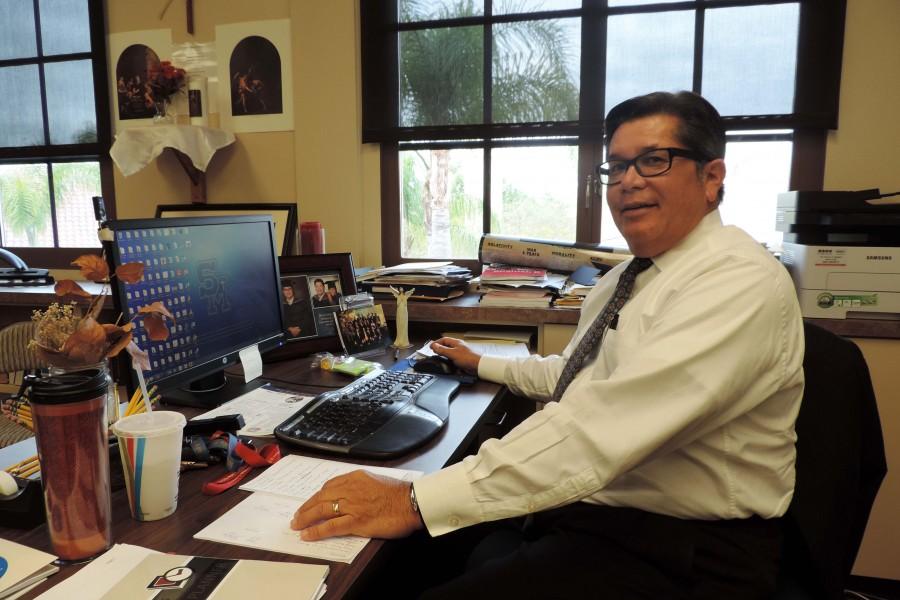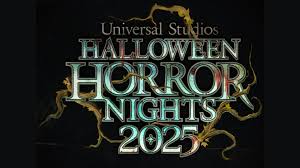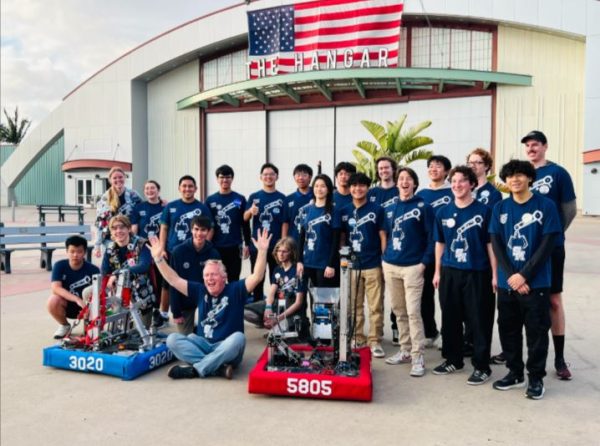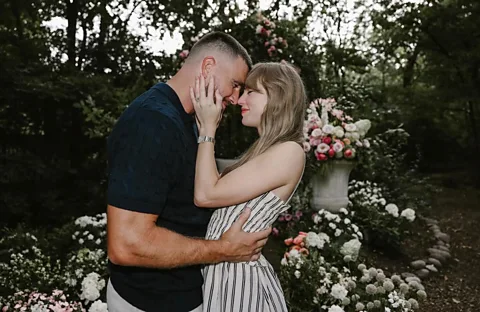Courage
Once stranded on an island, now liberated on a coast.
I pledge allegiance to the Flag of the United States of America, and to the Republic for which it stands, one Nation under God, indivisible, with liberty and justice… FOR ALL.”
He’s the teacher who lectures with his eyes closed, the one who strays off topic more often than he stays on task, and the one who exclaims the final two words the Pledge every single morning.
Current Spanish and Theory of Knowledge (TOK) teacher George Cou is approaching the end to his ninth year at SMCHS, and his passion for liberty and justice shines through in his daily tangents and fervent debates with students on controversial issues.

Faith and family – George Cou keeps a statue of an angel and pictures of his family at his desk at school.
“I try to teach my students that they’re not just learning a different language here, that there’s really more to it than that,” Cou said. “You can understand how other cultures think and why they think that way. You start to adapt a greater appreciation for what those other cultures bring, what they offer and how you can lend it into what we currently have to make us even better than what we are.”
In 1961, 5-year-old Cou lived with his part Cuban-Chinese-Spanish family in his hometown of Havana, Cuba. A fourth culture would soon be added on to his diverse identity, but the process of this addition would come with the separation from his family and the departure from his place of birth.
Once the Cuban revolution had come to an end in 1959, Fidel Castro initiated his program of nationalization, in which the government seized the properties of foreign-owned companies and forbid citizens from dealing with foreign currency. Since Cou’s grandfather was involved in the tourist industry, he had to get rid of all his foreign dollars as quickly as he could.
“He thought things would kind of pass over, that everything would come back to a normal form,” Cou said. “But as the year passed ‘59 into ‘60, ‘60 going into ‘61, things started to get worse and worse and my grandfather came to the realization that no, things were not going to change, it was not going to be the Cuba that he knew.”
At the time, the Castro government had set up neighborhood watches to spy on residents for any suspicious anti-government behavior. When Cou’s mother was trading out some American dollars for Cuban money, somebody reported her behavior. She was arrested and spent the next six months in a Cuban military jail.
“As children, we were screened from knowing that my mother had been arrested as a political prisoner,” Cou said. “It was not until years later that we, as older kids, found out about it. It was not until years later that one realizes the pain and sense of loss.”
As soon as they managed to get his mother out of jail, the papers were already complete so that she could get on a plane and leave immediately. So in the spring of 1961, Cou’s parents, along with his younger sister, fled to Spain. In the summer of the same year, Cou’s older sister was sent to relatives in Jamaica to escape Castro’s indoctrination efforts for the youth.
“One of the initial phases was that they would get all the kids onto the school yard, ask them to close their eyes, open their hands and ask God for a piece of candy,” Cou said. “Then they were asked to open their eyes again and there was no candy. Then they were asked to close their eyes, open their hands and ask Castro for a piece of candy. And when they opened their eyes. Presto! There was candy. It’s the government, the big brother, there’s no such thing as God.”
With both his parents and sisters out of Cuba, Cou was the last member of the immediate family still on the island. He stayed with his grandparents as they prepared for their own journey across the border to Florida in September of 1961.
“I remember clearly when we were still in Florida the first month, my grandfather and I used to walk by the coast there and we would look out towards the ocean and my grandfather would always used to tell me, ‘You know, I think the U.S. is going to do something. I’m hoping that real soon we’ll be able to return back home,’” Cou said. “It was very wishful thinking because it never happened, obviously. But we adapted.”
After spending three months in Miami, Cou moved to California with his grandparents in December of 1961 and was joined by his parents and sisters a few months later. Although this marked the end to his escape from Cuba, he was ready to face the new challenge of language and culture.
“At first, when you’re young and you’re growing up, you kind of fight it a little bit,” Cou said. “You think that it’s kind of a detriment because you want friends, and you think friends are looking at you different because you happen to be from another culture or you speak this strange language that nobody else speaks. But as I’ve grown older, I’ve realized that these two cultures actually gave me a greater ability to view and to see things differently than others, so I thank God that I have two cultures and the ability to speak two languages and speak them well.”
Cou was fortunate enough to live through his childhood with the company of healthy grandparents and even great-grandparents who filled him with great stories about life in Cuba, but also a strong sense of Cuban culture through the language, values and traditions.
“Our heritage, our background — it’s a part of who we are,” Cou said. “It’s not something that goes away, but something that you bring with you. And to me, that’s one of the beautiful things about America — the ability to be able to bring with you part of that culture and make it inclusive into what America is all about.”
In his language classes, Cou emphasizes the opportunities that a second language can bring students, especially in the globalizing world we now live in. In his TOK class, however, Cou dedicates the majority of his time to discussions on gender differences, political views, questions on ethics, historical topics, scientific issues and many more.
“[The United States] is my adoptive country,” Cou said. “So to me, it has become incredibly important to early on learn about its history, understand its system of government, understand what it is that we have here. By becoming an American citizen and basically getting acculturated to this new country of mine, I have developed a tremendous love and a real understanding of why it is important for each individual citizen to be involved in the process of the government.”
Cou’s curiosity about the process of government and representation in the United States inspired him to pursue a direct role in politics from the late 80s into the 90s. Through working for U.S. congressman Christopher Cox and then California state senator Robert Hurtt, Cou developed firsthand experience that increased his appreciation for the liberty and justice that our Pledge proclaims.
“I always try to bring to my students that need to be vigilant for what they have in this country — to be greatly appreciative for what this country gives them and to try to keep careful as to where this country is going,” Cou said. “Explaining where I came from, Cuba, and what happened there through my teaching of a language hopefully gives them a better understanding of why it’s so important to be appreciative of the freedoms that they have, of why they wouldn’t want something like what happened to Cuba to happen here.”
With recent improvements in the diplomatic relations between Cuba and the United States, the chance for Cou to finally return to his hometown Havana for the first time since he left in 1961 is slowly approaching. However, even with a loosened embargo, Cou is still limited by the risks that come with his family’s anti-Castro ties.
“I’ve never had a second thought about my American citizenship,” Cou said. “But it would definitely be a hope of mine to someday, at least be able to return to Cuba and have some closure. So if God is willing, if that’s the plan He has, then I’ll get back someday and be able to take a look at the places where I was born, where I visited and where I grew up for 5 ½ years.”
As the morning bell rings, he stands up from his chair and shuts his eyelids. And when those final two words of the Pledge approach, his voice rings with his honor for one nation, his hope for the other, and his faith for all.









